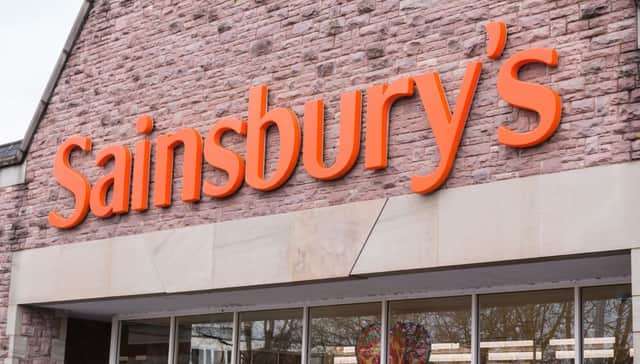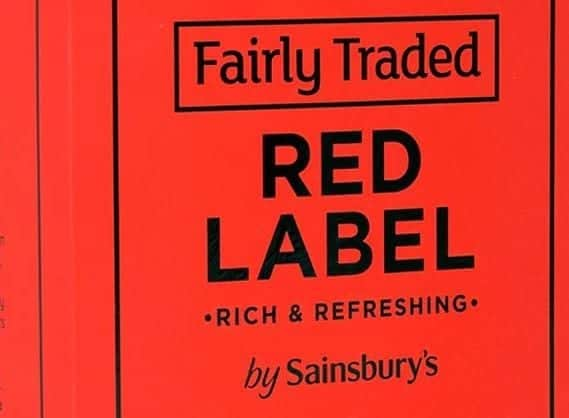Sainsbury's tea mislead shoppers over "fairly traded" claims


Sainsbury's "fairly traded" tea mislead shoppers who were left thinking it may be linked to the Fairtrade brand and scheme.
The second largest supermarket in the UK ran its own ethical scheme with its own logo on its own brand packs.
Advertisement
Advertisement
Last October its website promoted tea including "Sainsbury's Fairly Traded Red Label x240 Tea Bags 750g" with a 'Fairly Traded' logo of simple black text in a black border against the red colour of the packaging.


The same logo appeared underneath the product description, and linked through to a page which gave further information on the Sainsbury's Fairly Traded programme.
But Labour MP for Walthamstow Stella Creasy complained to the advertising watchdog the claim misleadingly suggested a connection to the Fairtrade scheme and was misleading as to the ethical standards that applied to the products.
Sainsbury's argued the claims was not misleading as "they signified to their customers that the tea had been sourced using very high ethical standards that identified and built on existing internationally recognised standards and was beyond simply achieving compliance.
Advertisement
Advertisement
The supermarket "never suggested their online content relating to the 'Fairly Traded' tea had been approved, endorsed or authorised by another body."


It conceded it did stock Fairtrade products too and these would be listed alongside its own "fairly traded" products when shoppers clicked through to the tea link.
It added the words "fairly traded" was chosen "as it guaranteed a minimum fair price for the crops" and through the social premium associated with Fairly Traded products "supported projects that benefitted the relevant businesses and communities."
The aim was "to improve the livelihoods of their suppliers, farmers, growers, and workers and to develop their understanding of sustainable practices so that, together, they could offer customers a greater choice of quality products."
Advertisement
Advertisement
It also pointed out all its suppliers were required to adhere to their Supplier Policy on Ethical Trade outlining "the employment practices and standards expected from their suppliers, wherever in the world they might be."
Its own scheme also fulfilled "the ten principles of Fair Trade set out by the World Fair Trade Organisation."
However the Advertising Standards Agency ruled Sainsbury's scheme could be confused with Fairtrade's and banned the advert.
It "considered the Fairtrade brand and scheme run by the Fairtrade Foundation was the most well-known fair trade scheme, and consumers were likely to be aware of that scheme, whereas they might not know about the existence of other, similar schemes."
Advertisement
Advertisement
It noted "Fairtrade Ceylon tea was referred to as "Sainsbury's Ceylon Tea", in the same way that the Red Label tea was referred to in the ad as "Sainsbury's Fairly Traded Red Label".
"We considered the fact that their own brand products used two different fair trade schemes was likely to cause confusion for consumers, who might assume that the packaging was using 'Fairly Traded' as a descriptive term to convey that it was part of the official Fairtrade scheme rather than that 'Fairly Traded' was itself the name of a separate scheme run by Sainsbury's."
Unfair trade
And while the company did provide more information about its own scheme, it was not obvious the "fairly traded" logo on the website "was a clickable link."
It said: "We considered consumers were not likely to scrutinise the page and were likely to make decisions to add products to their basket fairly quickly before moving onto their next product search.
Advertisement
Advertisement
"In that context, we considered consumers would not understand that the 'Fairly Traded' term specifically referred to a scheme run by Sainsbury's themselves, and it would not be clear that the scheme was not related to Fairtrade.
"Because we considered the ad did not make sufficiently clear that 'Fairly Traded' related to a separate scheme run by Sainsbury's, we concluded that the ad was misleading."
But it rejected the second complaint as it said "consumers would understand from the claim that a product was 'Fairly Traded' that the tea was produced as part of a scheme that involved the principles of fair trade.
"We understood that such schemes could involve different elements, and considered that consumers were unlikely to have a detailed understanding of how those schemes worked.
Advertisement
Advertisement
"However, we considered that consumers were likely to assume broadly that they would involve measures to ensure that fair prices were paid to producers and to ensure the standards of working conditions."
ASA concluded: "The ad must not appear again in its current form.
"We told J Sainsbury plc to ensure that future ads made sufficiently clear that 'Fairly Traded' products were part of a separate scheme run by Sainsbury's."